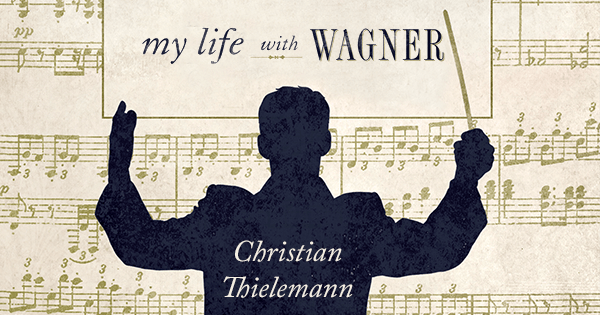My Life with Wagner
An excerpt from Christian Thielemann’s book about a lifetime of conducting

Is there a more controversial composer than Richard Wagner? His seminal music dramas continue to inspire and delight, though his abhorrent anti-Semitism is never far from any serious discussion. Few conductors today are as attuned to Wagner’s music as Christian Thielemann, the chief conductor of the Staatskapelle Dresden, whose performances at Bayreuth, home of the famed festival devoted to the composer’s music, have been much heralded by critics and audiences alike.
Thielemann’s new book, My Life with Wagner, is his personal reckoning with the enigmatic composer, who “confronted me with myself” from the very first listen. “Why is a life spent with Wagner so worthwhile?” he asks in the introduction. And can the revered art be separated from the reviled artist?
How do I think of Wagner the man? As domineering, irascible, foolish and intensely aware of his mission. As a driven, crazed demagogue. Hans Neuenfels once wrote, when he felt that he had met him in Bayreuth (he was fantasizing, of course), that at the sight of the Master, it was ‘as if he were pinned down like a moth in a collection’. I can well imagine it: eyes like daggers, seeing everything only too clearly! On the other hand, Wagner did indeed see a great many things very clearly, and his longing for totality in art, a kind of art that signifies everything, is quite familiar to me. Perhaps we are not so very different in our passions after all, although I myself find it easier to keep my feet on the ground. Wagner, on the other hand, liked to conjure up another Neuschwanstein in his imagination. In 1865, the year of Tristan and after his first meeting with King Ludwig II in Munich, he notes: ‘I can and must live only in a kind of cloud. As I am entirely an artist, I can lead only an artificial life. That means hardly mingling with other people, not talking to them, or only in jest, never seriously, for then what I have to say always becomes passionate and useless. […] At once I have not a care in the world. […] and then it is like being in Versailles at the court of Louis XIV, living amidst the most rigid etiquette, like a puppet on a string.’
No doubt reality looked different. Wagner was in fact down-to-earth and practical, and at the same time ‘amazingly hot-headed’—it is in the family to this day. He did not really float on clouds (or he would not have had to dream of it), but was to be found crawling around on the Bayreuth stage down below, furious because all was not exactly as he wanted it. ‘The architect of the Festival Theatre, that man Brückwald from Leipzig, is an idiot! The wood creaks at every step! And where’s the neck of my dragon that was made in London? Why has the machinery for the Rhine maidens gone wrong again? And who the devil ordered these tasteless provincial Red Indian costumes?’ Ultimately Wagner’s struggles are not so far from the everyday life of the theatre as it still is. True, these days Siegfried no longer wears a bearskin on stage, but if the director doesn’t envisage a cliché-ridden version of the Rhine maidens, they are still apt to present problems.
That is another reason why, as a conductor, I don’t feel that I have to know everything about Wagner’s life, although what I really would ask him if he unexpectedly walked in through the door is: my dear Wagner, how can a man of your character and your skill have been so wrong in his judgement of Felix Mendelssohn-Bartholdy? And there’s another thing, too: why, as a gifted practitioner of music, do you have so much forte in the orchestra in the first scene of The Mastersingers? Who can ever hope to sing against it?
Courtesy of Pegasus Books. Reprinted with permission.

